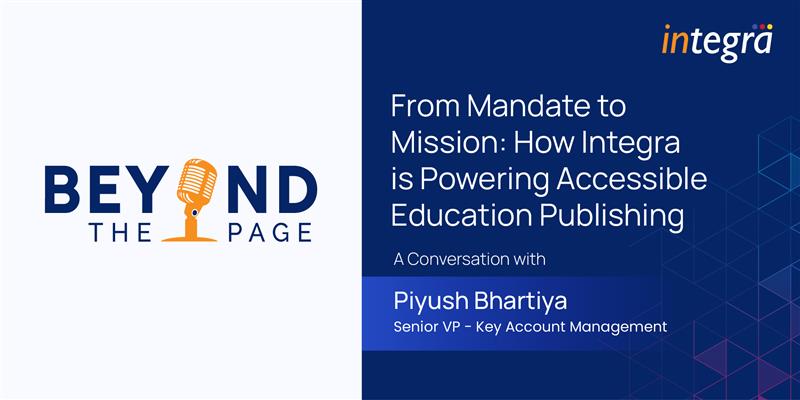
Originally published on: https://trainingindustry.com/articles/learning-technologies/ai-enabled-tools-your-personal-learning-agent/
As economies tilt toward skills-based occupations and emphasize “new collar” capacities, the demand for new capabilities and skills becomes paramount. This is not just a fleeting change but a significant evolution that necessitates a renewed approach to skills development. Corporate learning and development (L&D) leaders and decision-makers are now at the forefront of addressing this surge in demand for new capabilities and skills. To remain relevant, it’s imperative to integrate persistent learning tools that can keep pace with the fast-changing world.
Furthermore, as we delve deeper into the era of artificial intelligence (AI), a progressive approach to L&D becomes non-negotiable. This means not just acknowledging AI but making it a core component of L&D strategies. In doing so, companies can leverage AI’s potential to not only enhance the learning experience, but also to tailor it to individual needs, ensuring that their workforce remains agile, informed, and ready for future challenges. In this article, we’ll explore potential applications of generative AI in L&D.
The Case for Generative AI in L&D
Before diving deeper into the role of generative AI in L&D, it would be useful to examine why generative AI is considered a transformative enabler by understanding how learning occurs.
Malcolm Knowles, David Kolb and Jack Mezirow are all significant figures in the world of adult learning and their respective theories have been instrumental in shaping our understanding of how adults learn best. These theories largely highlight the importance of active, engaging and relevant learning experiences for adults.
At their core, most learning theories underscore the significance of experience, reflection and context in adult learning. This understanding highlights generative AI as a powerful instrument with the potential to revolutionize the L&D sector. Generative AI operates based on user prompts to answer a query. In this interaction, two critical attributes emerge as distinguishing features bolstering the case for generative AI:
- Immediate and real-time feedback: This facilitates more interactive and engaging learning. A user/learner becomes deeply involved in the dialogue, which in this instance is tailored to a learning activity, leveraging their existing knowledge to gain further insights.
- AI’s ability to perform cross-domain knowledge synthesis: This positions AI as a domain expert, capable of aiding knowledge exploration in intricate learning scenarios.
With generative AI, the learner is at the center of the learning and self-directs their learning process.
Generative AI as Learning Agents
Imagine a digital assistant, similar to Siri or Alexa, but tailored expressly for corporate L&D. This AI-driven agent doesn’t just passively wait for commands; it actively assists employees by providing real-time learning interventions when needed. What amplifies its effectiveness is its synergy with a mobile-first learning content strategy. This combination ensures that the assistant seamlessly integrates into the natural user experience of a device, making learning on the go not only possible, but also intuitive and user friendly.
Furthermore, such an adaptive learning tool holds universal appeal, benefiting workforces across various categories and industries. By catering to diverse learning needs and preferences, it becomes an indispensable asset for companies aiming to upskill their teams in today’s fast-changing business environment.
Generative AI offers two distinct strategic implementations:
- Text-based generative AI: Among the most valuable uses of Generative AI in L&D is text prompt-based instruction. These systems stimulate critical thinking, challenge established ideas, and help learners draw connections between various pieces of information—skills universally deemed essential for the future. Text prompting shifts the learning process from simply receiving information to actively interacting with it. Learners become participants in their knowledge discovery. This AI-driven nudge encourages learners to think and reflect more deeply, making the learning experience both personalized and impactful.
- Voice-based conversational AI: Voice-activated Generative AI offers a heightened level of personalization. By facilitating natural language conversations, these systems immerse learners in engaging experiences. They also hold potential in training soft skills such as negotiation and interpersonal communication, critical in today’s professional landscape. There are numerous inventive ways to deploy conversational AI, including as just-in-time learning aids or virtual expert response systems activated by voice commands
Future Forward With Generative AI
Generative AI is poised to significantly influence training and L&D domains. It resonates with adult learning theories that prioritize self-led and experiential learning. While text-based applications foster critical thinking and problem-solving, voice-activated systems focus on refining interpersonal skills. The immediacy of Generative AI ensures timely access to information when most needed.
A standout advantage of introducing generative AI to the L&D domain is the enhancement of learning analytics. Such AI can be pivotal in gauging a learner’s knowledge and abilities. By evaluating the questions learners ask, AI-driven systems can assess proficiency in various competencies and pinpoint learning deficiencies. This data-centric method supports decisions on training investments, channeling resources to maximize impact.
Projecting into the future, leveraging AI in L&D is set to enable individuals to steer their learning paths, meet evolving skills needs and help businesses thrive.
This integration represents a shift toward a well-informed, adept workforce equipped for tomorrow’s challenges.
Recent Blogs

From Mandate to Mission: How Integra is Powering Accessible Education Publishing

Beyond Business as Usual: Why Integra’s Sustainability Story Matters More Than Ever


